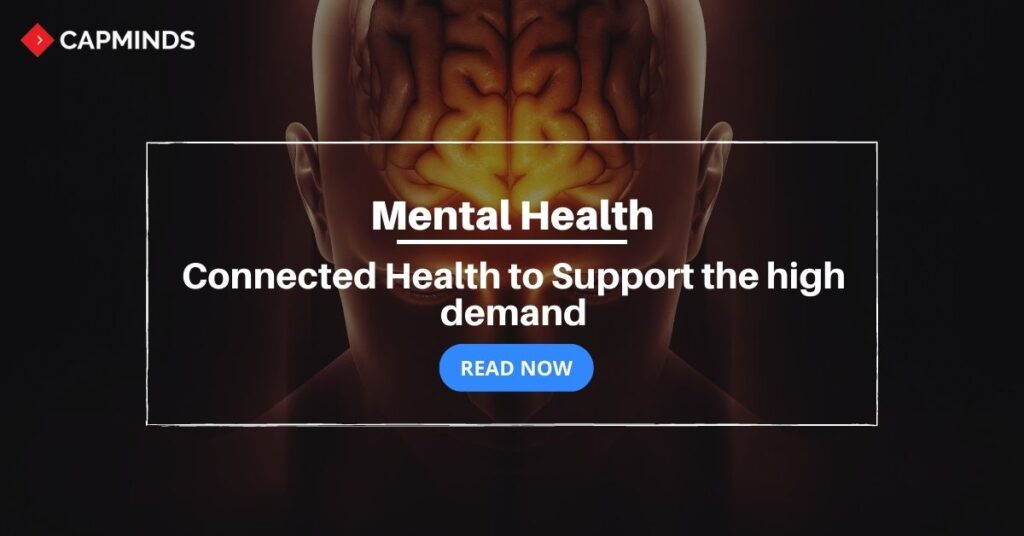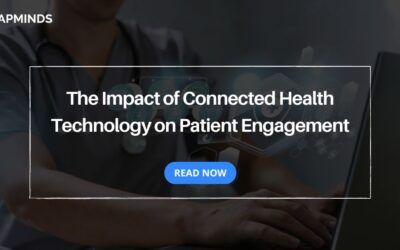Mental Health: Connected Health to Support the high demand
In recent years, mental health has emerged as a critical global issue, affecting millions of people worldwide.
With the increasing prevalence of mental health disorders, there is a growing demand for innovative approaches to support prevention & cure. Connected health, a rapidly evolving field that utilizes technology to enhance healthcare delivery, has the potential to revolutionize mental health support.
RELATED: Top 6 Most Demanded Connected Health Devices in 2023
This blog post will explore the intersection of mental health and connected health, highlighting the importance of demanding support for prevention and cure. By leveraging technological advancements, we can empower individuals, bridge gaps in mental healthcare, and pave the way for a brighter future.
The State of Mental Health
To understand the significance of connected health in mental health, it is crucial to acknowledge the current state of mental well-being.
- Mental health disorders, including anxiety, depression, and substance abuse, have reached alarming levels globally
- Factors like societal pressures, trauma, and limited access to mental healthcare contribute to the increasing burden
- Traditional approaches to mental health support often face challenges of accessibility, affordability, and stigma
- These barriers highlight the pressing need for novel solutions to tackle mental health issues effectively
RELATED: Virtual Support Systems: The Role of Connected Health in Oncology Patient Support
The Promise of Connected Health
Connected health, also known as digital health or e-health, refers to the use of technology to improve healthcare services. In the context of mental health, connected health presents exciting opportunities to transform the landscape of prevention and cure.
Key Aspects of Connected Health that Hold Promise
1. Teletherapy & Online Counseling
- Connected health platforms enable individuals to access mental health professionals remotely
- Teletherapy and online counseling offer convenience, privacy, and flexibility in seeking therapeutic support
- These digital solutions break geographical barriers and increase access to quality mental healthcare
2. Wearable Devices & Sensors
- Wearable devices equipped with sensors can monitor various physiological parameters related to mental health, like heart rate, sleep patterns, and stress levels
- This real-time data can provide valuable insights into an individual’s well-being, helping identify early signs of mental health issues and triggering timely interventions
3. Mobile Apps & Digital Tools
- Mobile applications and digital tools offer a range of mental health resources, including meditation guides, mood trackers, and self-help programs
- These tools empower individuals to actively manage their mental well-being, promoting preventive practices and building resilience
Bridging Gaps in Mental Healthcare
Connected health has the potential to bridge significant gaps in mental healthcare, benefiting both patients and providers. Let’s explore how connected health can address these gaps.
1. Accessibility
- Connected health solutions eliminate geographical barriers, ensuring individuals from remote or underserved areas can access mental health support
- This is particularly valuable for marginalized communities with limited resources and healthcare infrastructure
2. Affordability
- Traditional mental health treatments can be expensive, making them inaccessible to many
- Connected health offers cost-effective alternatives, allowing individuals to receive therapy and support at lower costs
- This affordability broadens the reach of mental healthcare, enabling more people to seek assistance
3. Early Intervention and Prevention
- Connected health tools facilitate the early identification of mental health issues by monitoring relevant data
- With timely intervention, mental health disorders can be addressed at their initial stages, preventing the escalation of symptoms and reducing the overall burden on healthcare systems
4. Integrated Care
- Connected health platforms enable seamless integration of mental healthcare into primary care settings
- This integration promotes a holistic approach, where mental health is recognized as an integral component of overall well-being
- Coordinated care between mental health professionals and primary care providers enhances patient outcomes and reduces fragmentation in healthcare delivery
Advocacy and Support
To realize the full potential of connected health in mental health, it is crucial to advocate for its widespread adoption and support.
Key steps we can take
1. Raising Awareness
- Education and awareness campaigns can help combat the stigma associated with mental health and promote the benefits of connected health solutions
- By fostering open conversations and dispelling myths, we can encourage individuals to seek help and embrace digital mental health resources
2. Policy and Funding
- Advocacy efforts should focus on influencing policymakers to prioritize mental health and allocate sufficient funding for connected health initiatives
- By advocating for supportive policies and funding opportunities, we can create an environment conducive to innovation and implementation of connected health solutions
3. Research and Evaluation
- Continuous research and evaluation are essential to establish the efficacy and impact of connected health interventions in mental healthcare
- By supporting studies and gathering evidence, we can build a strong case for the integration of connected health into standard mental health practices
4. Collaboration and Partnerships
- Stakeholders from various sectors, including providers, technology companies, researchers, and policymakers, need to collaborate and form partnerships
- By combining their expertise and resources, they can drive the development and implementation of effective connected health solutions
Final Thoughts
The demand for mental health support is higher than ever, and connected health has emerged as a promising avenue to address this pressing need.
By leveraging technology, we can empower individuals, bridge gaps in mental healthcare, and work towards prevention and cure. Teletherapy, wearable devices, mobile apps, and integrated care are just a few examples of how connected health is transforming mental health support.
However, to fully harness the potential of connected health, we must advocate for its widespread adoption, raise awareness, shape policies, support research, and foster collaborations. Together, we can create a future where mental health support is accessible, affordable, and integrated, providing preventive measures and effective treatments for individuals worldwide.
Let us demand the necessary support for prevention and cure, ensuring that mental health remains a top priority in the connected health revolution.
Connected Health Services from CapMinds
Improve patient outcomes by providing timely, personalized care that is more accessible, convenient, and cost-effective than traditional healthcare with CapMinds Smart connected health services. Monitor patients remotely, detect potential health issues early on, and intervene before they become more serious. Our services help reduce healthcare costs by avoiding hospital readmissions, preventing complications, and improving medication adherence.
Our Connected Health features include and are not limited to;
- Remote Patient Monitoring
- Telehealth/telemedicine
- Personalized medicine
- Health Information Exchange
- Patient Engagement
- AI & ML
- Remote care coordination
- Digital therapeutics
- Wearable device integrations
CapMinds provide smart and advanced integration & implementation of connected health device services like Smart Meter, Google Fit, Dexcom, Ambrosia, Freestyle Libre, Tidepool, etc., to make you better track and monitor your vitals and be connected with healthcare providers.
“Let us help you be exceptionally connected for better patient outcomes”




